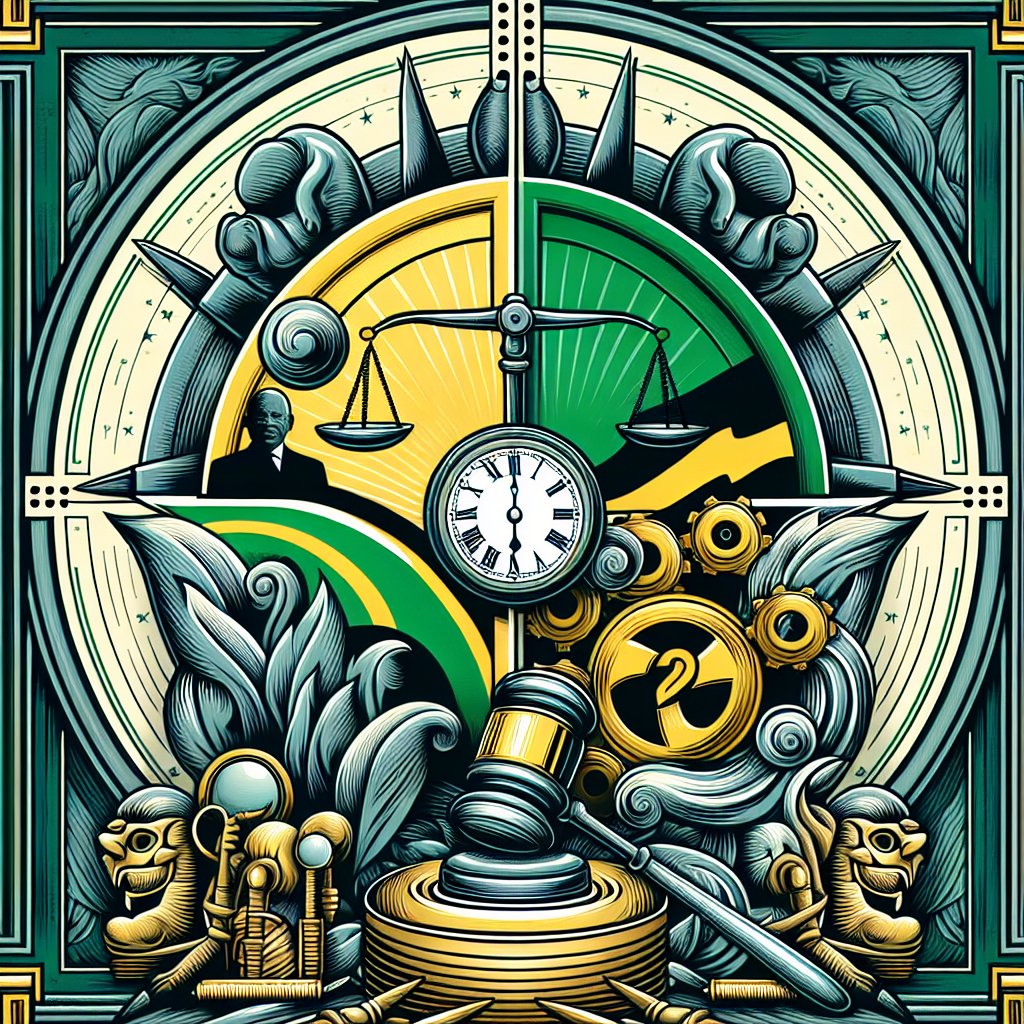Content created by AI
ANC's Legal Challenge Against Zuma-Linked MK Party Over Name and Logo
JOHANNESBURG - The African National Congress (ANC), South Africa's ruling party, has instigated legal action against the uMkhonto weSizwe (MK) party, filing a cease-and-desist order over the use of its historic name and logo, which are trademarked assets.
The MK party, which has gained notoriety due to the backing of former President Jacob Zuma, finds itself at the center of a contentious debate due to the adoption of a name and emblem reminiscent of the ANC's former armed wing, uMkhonto weSizwe, a group integral to the anti-apartheid struggle. The controversy has escalated as the MK party's insignia, which features the symbolic green and gold hues closely associated with the ANC, risks creating confusion among the public and diluting the revered MK brand, according to legal representations made by the governing party.
Eyewitness News has obtained a detailed six-page letter in which the ANC details the historical significance of the MK brand, emphasizing the role it has played since the group's establishment in 1961. The governing party affirms that it has recently solidified its ownership of the MK trademarks through an agreement with Legacy Projects, a non-profit entity.
Visual comparisons between the logos of the two organizations reveal subtle differences, yet the resemblance has raised alarms within the ANC about potential misrepresentation. Although the spear depicted within the MK party's logo diverges in placement from that of the historical movement's symbol, the ANC contends that the similarities could mislead or confuse the electorate and therefore harm the longstanding reputation associated with the MK brand.
The ANC’s legal challengers have outlined a case whereby the new MK party, led by Mr Jabulani Khumalo, is alleged to be capitalizing on the established prestige and recognition of the MK name, to the detriment of the ANC's trademark rights. It is a case of brand identity and the legacy of symbols that hold deep significance in South Africa’s liberation history.
The dispute is grounded in issues of intellectual property law, specifically involving trademark infringement and brand confusion. Hence, it serves as a significant example of the intersection between politics, law, and the enduring weight of historical symbols.
Mr Khumalo's party could face a court dispute if it does not comply with the demands laid out by the ANC to relinquish use of the name and change its logo by the set deadline of December 29. The party, which was formally registered with South Africa's Independent Electoral Commission (IEC) in September, finds itself at a crossroads that could define its political path forward.
As audiences nationally and internationally watch on, the ANC has reiterated its resolve to protect its intellectual property rights while navigating the sensitivities involved in a legal conflict that cuts close to the core of South Africa's liberation narrative.
In summary, the political landscape of South Africa is currently being reshaped not only by policy and ideologies but also by a battle for the ownership and use of symbols that carry historical significance and political weight.










